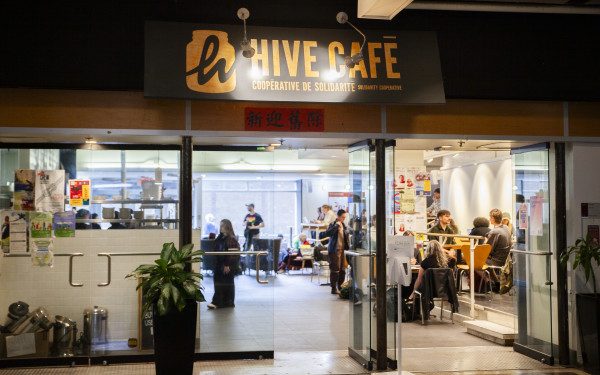The bitter taste of convenience
How Concordia University chooses convenience over nutrition for their students
If you’ve ever lived at Grey Nuns or any of the other Concordia University residences, you know the story.
The meal plans are mandatory, but the food? Well, it leaves much to be desired.
I’ve heard countless complaints about the mouldy bread, uncooked meat and a lack of options for students with dietary restrictions. This isn’t just student grumbling, it's a systemic failure in how Concordia handles its food services.
At the heart of this issue is Aramark, a global corporation that provides food services to universities and US prisons. In April 2021, Concordia’s Board of Governors renewed Aramark’s contract until 2026. For the next year, thousands of students will be trapped into meal plans that feature a history of low-quality, overpriced food.
Aramark’s reputation is problematic.
The company is notorious for cutting costs at the expense of quality, which has led to numerous food safety violations in prisons and schools across North America. In California, inmates sued Aramark for serving food infested with rodents and insects. And here at Concordia, students have taken to social media—on accounts like @greynunscaf—to showcase photos of undercooked chicken, mouldy sandwiches and meals that no one should have to pay for, let alone eat.
Yet, despite these obvious issues, Concordia’s administration insists on its website that Aramark provides a "healthy, safe, sustainable dining experience" for students. I would challenge anyone who’s lived in residence to support that claim.
What’s even more frustrating is that the request for proposal process, which led to Aramark’s contract renewal, was purportedly "transparent" and "competitive." Only four large multinational companies competed for the contract. Smaller, more sustainable providers didn’t even stand a chance. Concordia is home to a brilliant network of sustainable and local food organizers and makers—why not take advantage of this strength?
This system isn't just bad for our taste buds; it's bad for our wallets. The mandatory meal plan for students living in residence costs a staggering $6,225 for the academic year. That’s more than most of us can afford, especially when many of us find ourselves paying out of pocket for food we can actually eat off-campus.
And that’s the core of the issue: Concordia’s meal plan, designed to feed thousands of students a day, isn’t built for us, it’s built for corporate convenience. We must rethink this system and give students the flexibility they need.
Concordia should let students decide how to spend their dining dollars. An actual Flex Dollar program would allow students to use their prepaid meal plan funds at a variety of campus dining locations—including student-run options like the Hive Café, The People’s Potato and Le Frigo Vert. These organizations offer affordable, locally sourced and often more culturally relevant meals than anything Aramark has to offer.
I would like to see a campus where you can support student-run initiatives that align with Concordia’s stated values of sustainability and diversity. Institutions like McGill University and the University of British Columbia (UBC) have already implemented flexible meal plan systems that let students choose where their money goes. The result seems to be happier students, less food waste and a greater emphasis on supporting local food producers.
There are always concerns about costs or logistics when proposing change, but let’s be real: this is about priorities. If McGill and UBC can make it work, so can Concordia. They have the resources and the infrastructure to make this happen. But will they?
I’m tired of hearing about diversity and inclusion when it’s not reflected in the day-to-day experiences of students. If Concordia truly cares about its students, it’s time to show it. Expanding the Flex Dollar program isn’t just about food, it’s about giving students the freedom to choose, the power to support local initiatives and the respect we deserve.
It’s time for Concordia to start walking the talk.
This article originally appeared in Volume 45, Issue 7, published January 14, 2025.





_(1)_600_375_s_c1.png)

